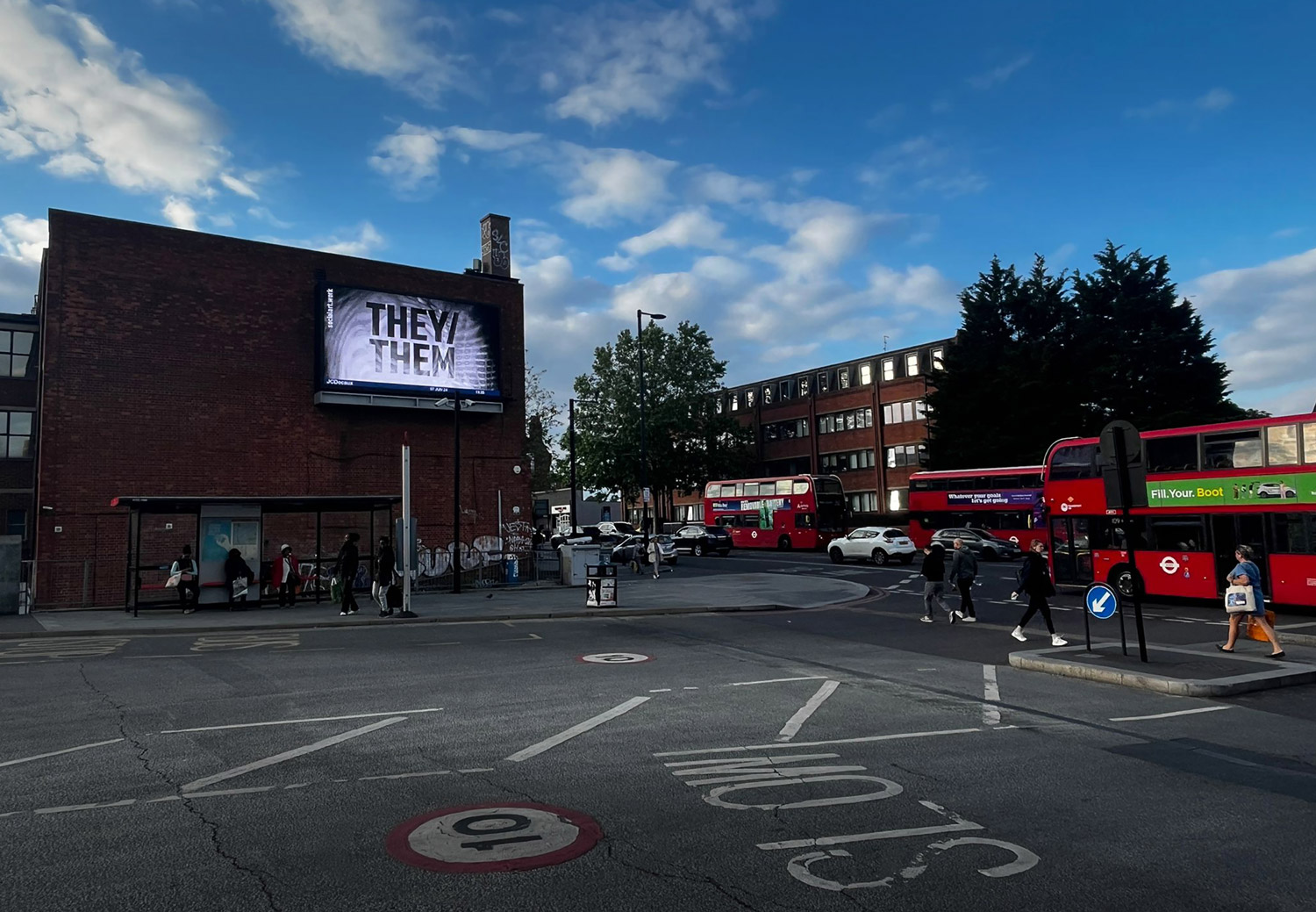We use the cookies _ga, _gat, _gid to collect anonymous data about how you use this site. OK.
2024
Digital billboards and posters
1 of 17 from
All Varieties
288 x 576px, 352 x 540px, 360 x 576px, 432 x 288px, 448 x 576px, 504 x 756px, 576 x 880px, 600 x 280px, 600 x 300px, 612 x 306px, 720 x 384px, 720 x 1080px, 864 x 432px, 864 x 1296px, 880 x 576px, 900 x 450px, 1040 x 440px, 1080 x 1920px, 1152 x 432px, 1224 x 324px, 1280 x 360px, 1728 x 432px, 1920 x 1080px, 2160 x 3840px, 2304 x 576px, 3024 x 3024px Jpeg, RGB Colour
June & July 2024
UK-wide
All Varieties
, a nationwide public artwork timed to coincide with Pride across the UK, celebrates the labels that help people express their individuality and define their place in the world.
The Oxford English Dictionary (OED) advises using ‘they’ for 'a person whose sense of personal identity does not correspond to conventional sex and gender distinctions, and who has typically asked to be referred to as 'they' (rather than 'he' or 'she')’.
'They' as a singular, gender neutral pronoun was the Merriam-Webster Dictionary’s word of the year, 2019.
The earliest recorded use of 'they' as a gender neutral pronoun comes from the 14th Century in a poem titled
Guillaume de Palerme,
rendered into English as
William the Werewolf.



